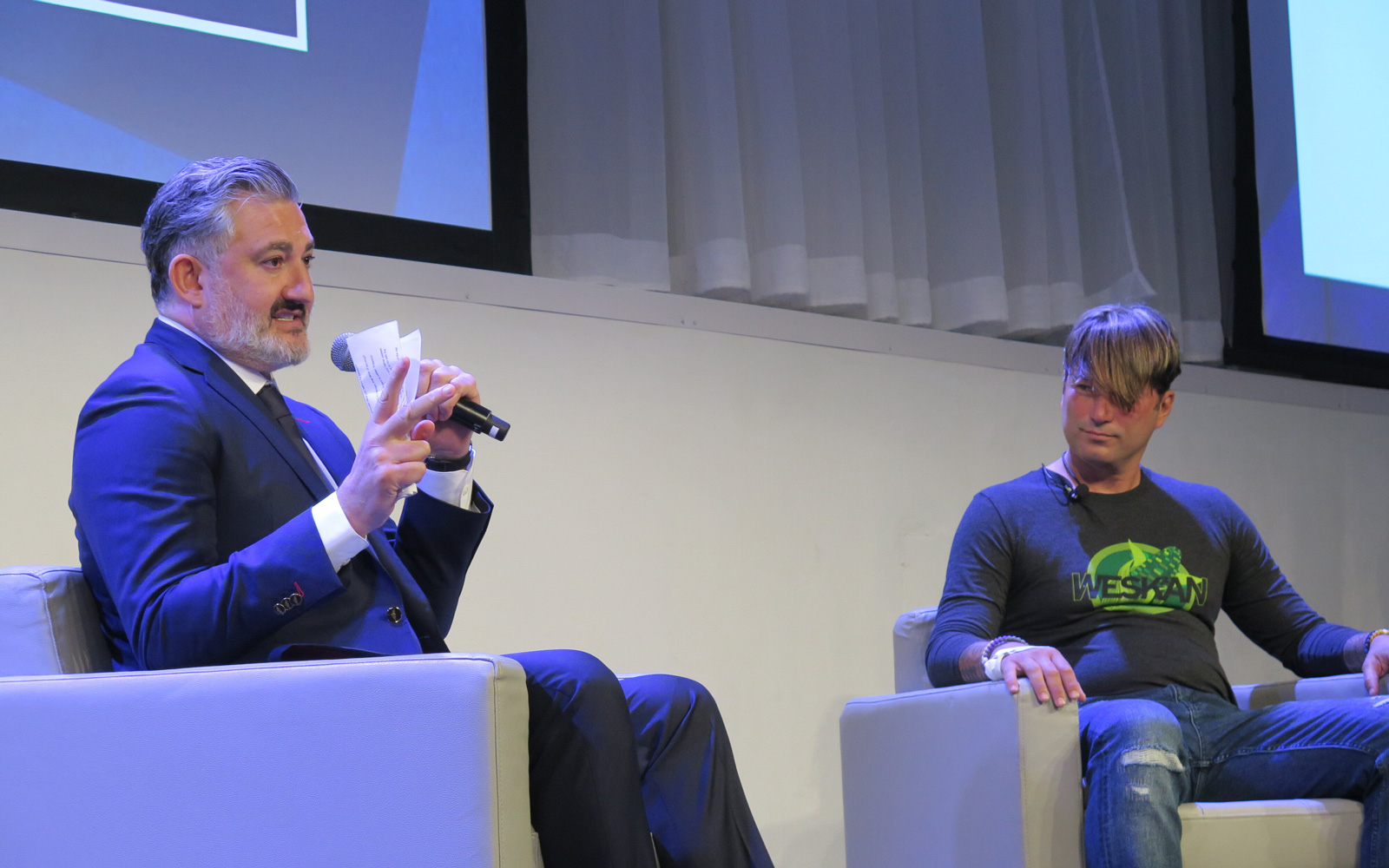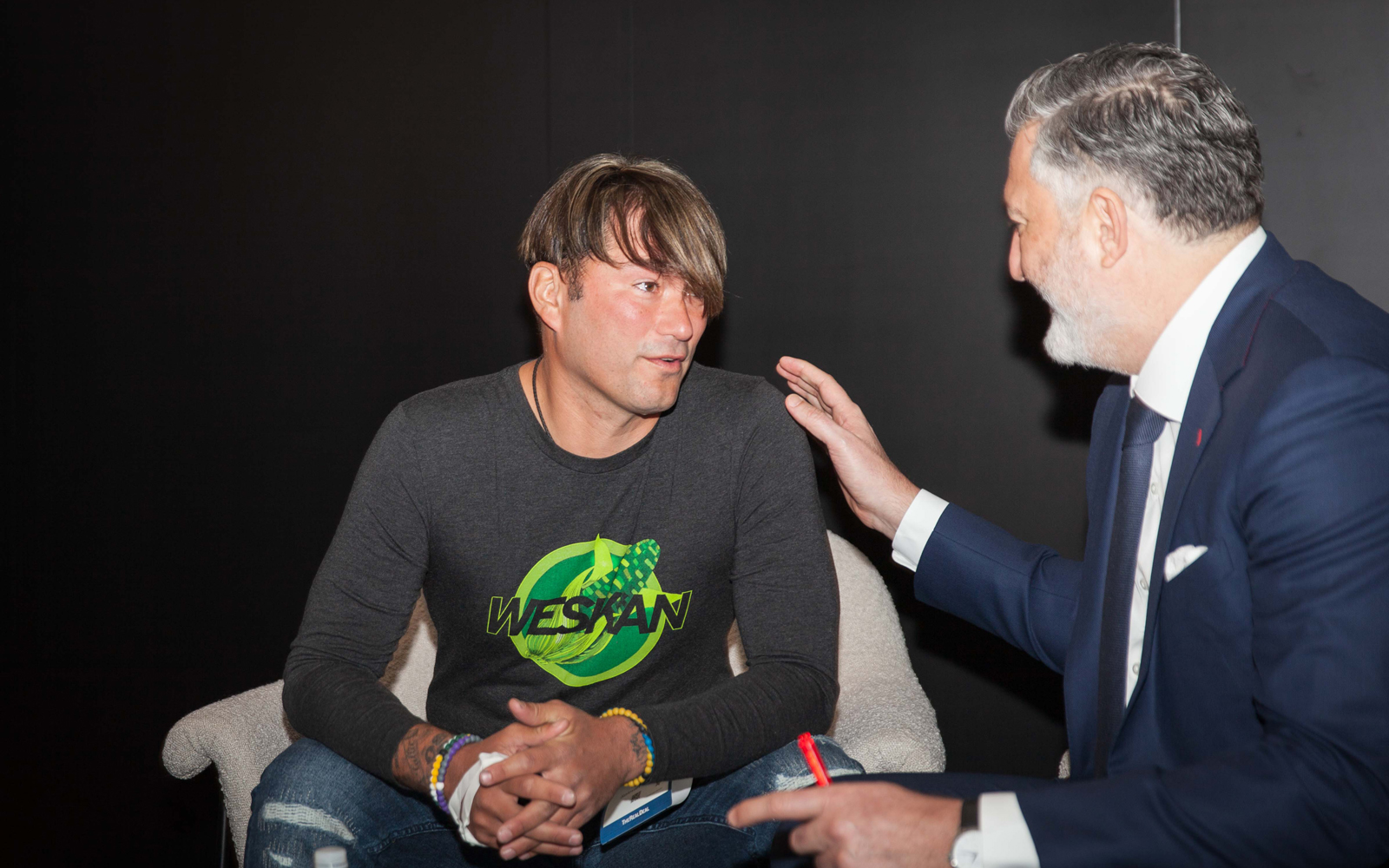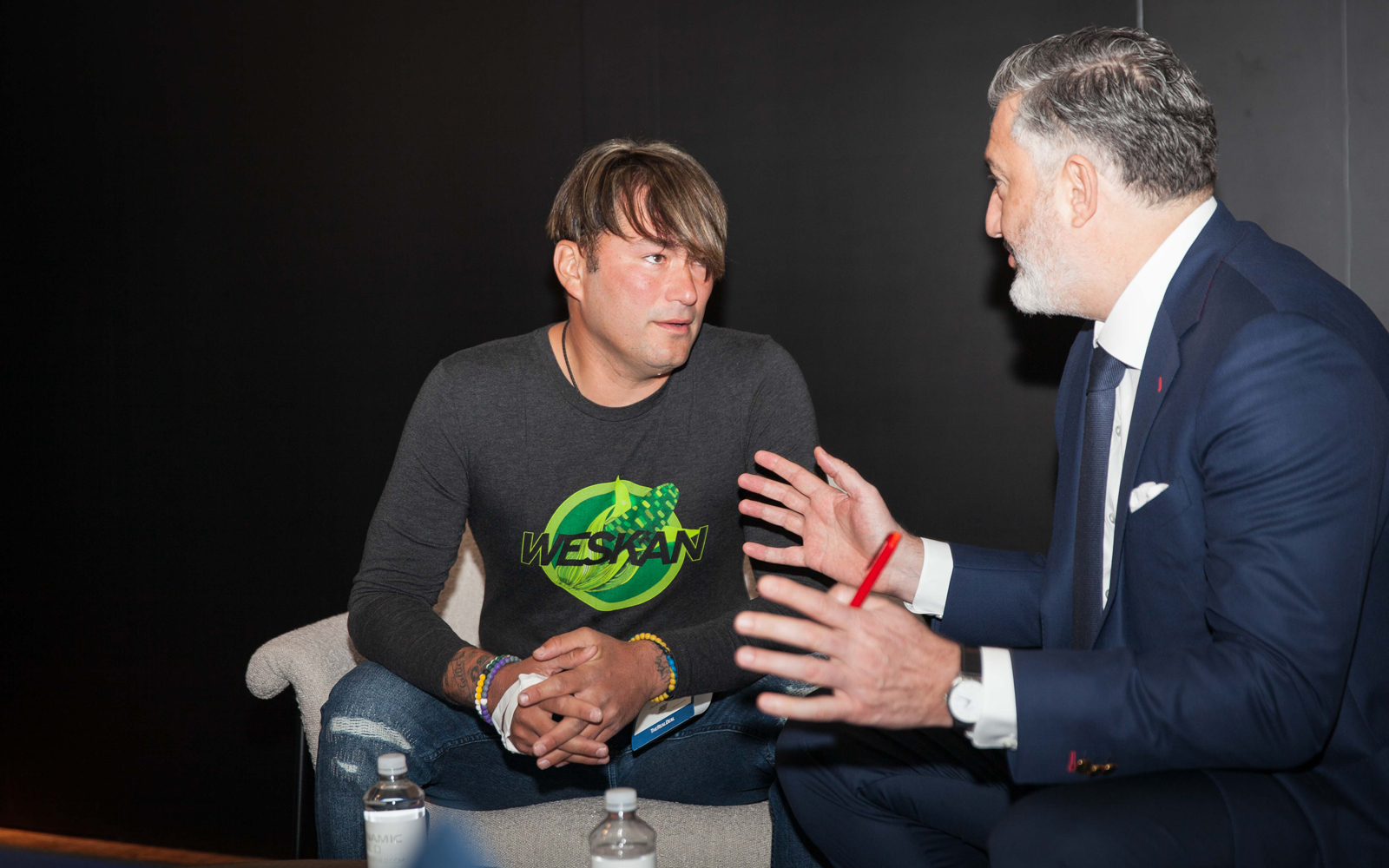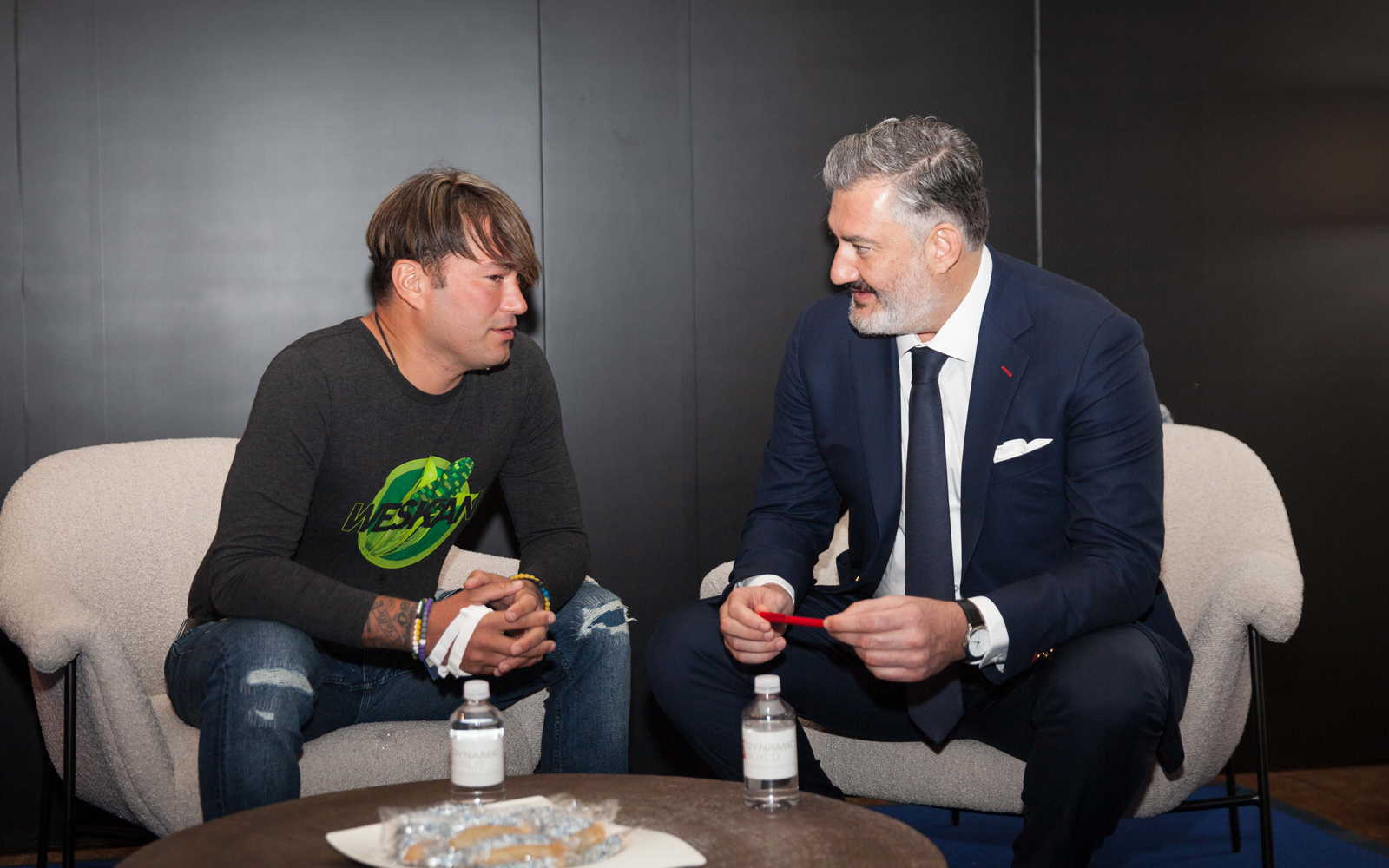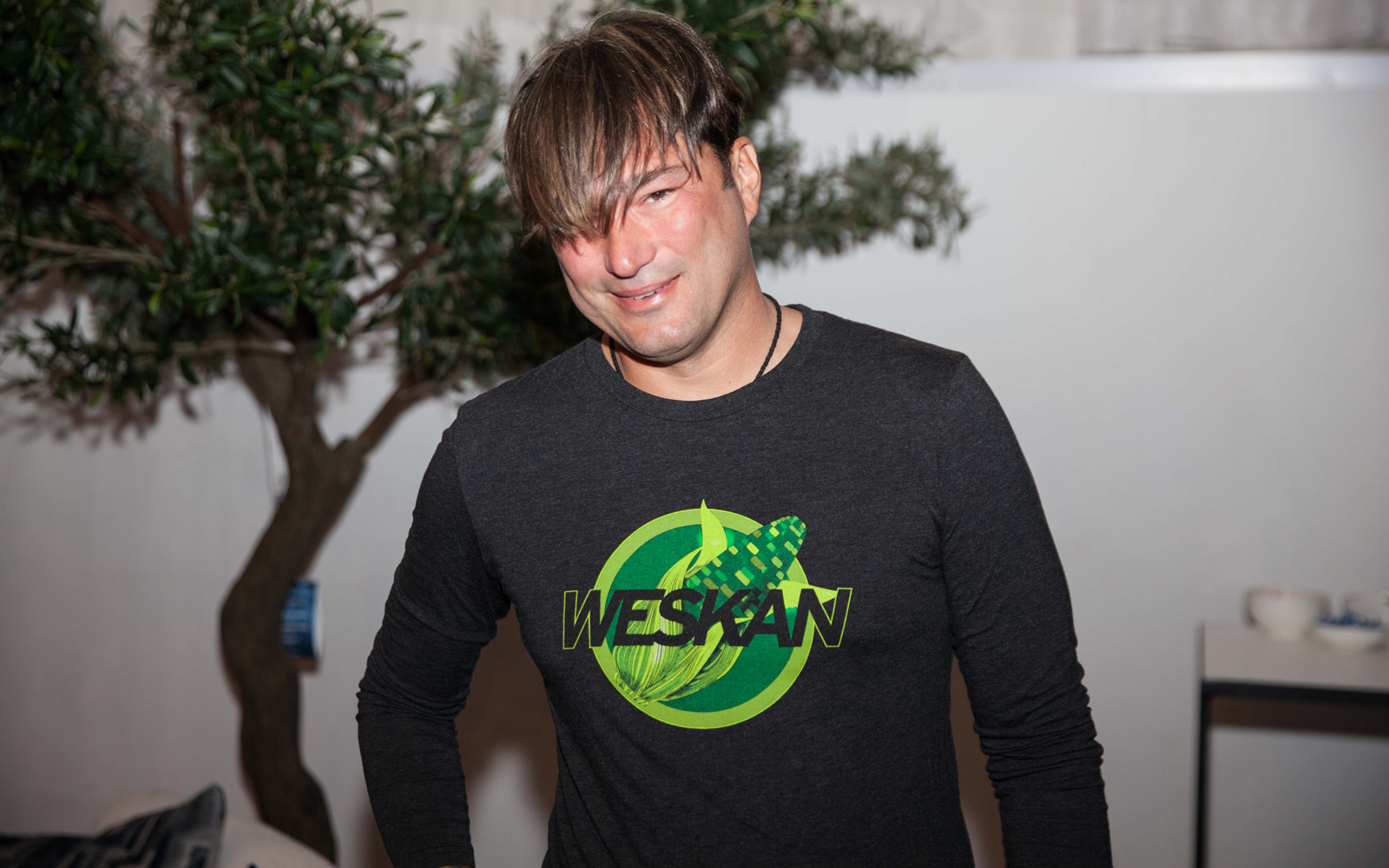Stefan Soloviev made one thing clear in his coming-out Thursday to the New York City real estate industry: His passion is not New York City real estate.
But he’s also not abandoning it. Far from it.
The billionaire real estate scion, who inherited an empire of brick and mortar from his late father, Sheldon Solow, took the stage for a rare if not unprecedented public interview at The Real Deal’s New York City Showcase + Forum.
Before Soloviev uttered a word, it was clear to the overflow audience that even in a business known for colorful characters, he was different by an order of magnitude.
The 47-year-old chairman of the two-year-old Soloviev Group took the stage dressed in a Weskin Grain T-shirt mostly tucked into ripped-up jeans, with dirty-blonde bangs hanging entirely over his left eye, multicolored bracelets and tattoos on his arms and a thick bandage over his right wrist.
Soloviev struck a stark contrast to his nattily attired interviewer, TRD founder and publisher Amir Korangy. If not for his conference badge, getting past security might have been a challenge for the reclusive billionaire and product of New York’s most elite private schools.
In the 45-minute session, Soloviev frequently steered the conversation away from real estate to his true love, the grain industry.
“I want you to understand how the food industry works and how it works for farmers and how you have these massive conglomerates that are trying to keep it their way,” he told the spellbound crowd, which filled a thousand seats and stood in much of the space around them.
The audience didn’t hold the tangents against him. Quite the opposite: Soloviev was mobbed after leaving the stage, generously posing for selfies and offering to connect with admirers on LinkedIn.
When he did talk real estate, Soloviev focused on two Manhattan assets from his father’s portfolio that he is keeping: the prestigious office building at 9 West 57th Street, just south of Central Park, and the undeveloped Midtown East parcel he has dubbed Freedom Plaza, where he plans to build a casino — if he can win the competition for a license from the state.
“I don’t think about, ‘What if I lose?’” Soloviev said when asked what he would otherwise do with the 6.7-acre site, which his father bought in 2000 from Con Ed for $600 million. “I try not to lose.”
Soloviev has captured the imagination of the New York real estate industry since he came to the helm of Solow Building Company after Solow’s death in 2020. The heir long ago dropped the Americanized surname embraced by his father and did the same in forming the Soloviev Group to absorb the parent firm’s assets, which he has been selling to pay an enormous estate tax bill.
He had previously bought up land in the Midwest and on the North Fork of Long Island, tapping the knowledge of local farmers as well as federally subsidized farm loans. With help from his ex-wife, Stacey Soloviev, he is actively farming the acreage and making wine, but said he hopes to build homes on the North Fork property, opposite the Hamptons.
When Korangy asked if Solow’s notorious litigiousness also reflected his parenting style, Soloviev said, “It was challenging. I’m not going to say it was easy.” It played a role in him leaving the city for a tract house in Kansas, where he said his happiest years were spent and where his infatuation with wheat developed.
“I wasn’t the billionaire,” he said. “My father was the billionaire.”
Details, he promised, would be revealed in a book he is writing.
Soon after Soloviev took over his father’s firm, rumors surfaced that he held little interest in it, though he was already its executive vice president. He seemed intent Thursday on dispelling that notion, speaking with enthusiasm about the casino plan and his expectation to easily fill the remaining vacant space at 9 West 57th Street.
At the same time, he more or less confirmed his priorities lie in the fields of western Kansas and Colorado.
“We’re diversifying,” said Soloviev. “My father didn’t believe in diversification and I learned diversification early. So selling [our residential assets] gave us enough diversification to where we could really concentrate on 9 West and Freedom Plaza.”
He said the vacancy rate at 9 West 57th Street has fallen to 12 percent since he took over the company, up from 50 percent under his father, who was famously picky about tenants.
“He did an amazing job putting different properties together,” said Soloviev. “Running them, that’s where we clashed.”
Despite the success and the excitement over the possibility of a casino on the horizon, Soloviev said he won’t be making new investments in the city anytime soon.
“I’m not looking to buy any other buildings in New York right now,” he said. “Nine West 57th Street is my priority in New York, Freedom Plaza is my priority.”
Despite not resembling a devotee of desk work, Soloviev forecast that in the next two years employees will lose the desire to work remotely. In the meantime, he expects the revamped amenity space at 9 West 57th Street, like the gym and two pools, to attract tenants. The building is the top revenue source in Soloviev’s empire, he said.
Soloviev was effusive in his praise of the operators of Connecticut’s Mohegan Sun, who would run Soloviev’s casino on the East River if his proposal is tapped.
“They’re amazing people,” Soloviev said. “They are, in my opinion, the best-run casino.”
Yet he conveyed those projects are insignificant next to the grain empire he’s spent much of the last two decades building to compete with companies raking in $100 billion a year.
In what might have explained his bandaged wrist, Soloviev said he had just loaded up his first 110-car freight train, which he called “the most significant achievement of my life.”
“I just want you guys to understand,” he said, “New York is a bit of a bubble.”


